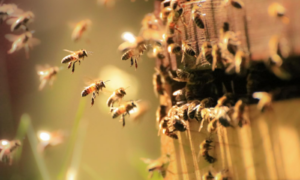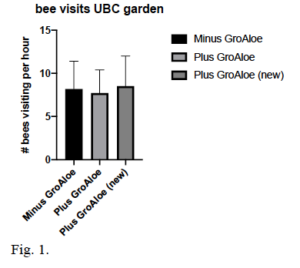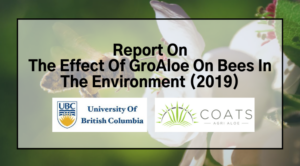Report on the effect of GroAloe on bees in the environment (2019): John Klironomos Professor of Biology

During the summer of 2019, we conducted a trial using GroAloe at the University of British Columbia, Okanagan campus to determine whether bees are affected positively or negatively. GroAloe has been shown to reduce populations of certain insects (for example leafhoppers, aphids, and whiteflies). One concern is whether it will also negatively affect populations of beneficial insects, such as pollinators. The trial was conducted on five wildflower gardens on campus.
T he gardens consisted of a mix of perennial herbaceous flowering plants, mainly asters and grasses. At each garden, one third of the area was sprayed weekly with GroAloe, the other third was sprayed with a new formulation of GroAloe, and the final third was sprayed with a water control. This was conducted over a 7-week period during the months of July and August, 2019.
he gardens consisted of a mix of perennial herbaceous flowering plants, mainly asters and grasses. At each garden, one third of the area was sprayed weekly with GroAloe, the other third was sprayed with a new formulation of GroAloe, and the final third was sprayed with a water control. This was conducted over a 7-week period during the months of July and August, 2019.
Every second day, we conducted observations at the gardens and measured the number of flower visitations by bees over a two-hour period. Figure 1 shows the results of those observations. There was no significant difference in flower visitation by bees among the three treatments. We also note that when bees visited, they spent the approximately same amount of time at each flower and there was no observable difference in their behaviour.
These results suggest that GroAloe does not harm bees (which are important pollinators of many plants) and does not have any adverse effect on their behaviour.







